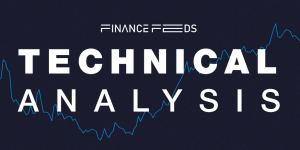Will the dust ever settle for Robinhood?
The situation that affected Robinhood should serve as a reminder to broker dealers that b booking is not a sustainable business model

Robinhood’s recent restrictions amid extreme volatility caused by the trading of meme stocks have left a hole in its identity. Only time will tell if they’ll recover the image they worked so hard to build.
It’s just like the tale as old as time. David versus Goliath.
Robinhood was the sling that broke before the shot to the head. Why? We might only get the full picture after the SEC investigation, which charged the broker-dealer with misleading customers about revenue sources and failing to satisfy the duty of best execution.
Off to a promising decade, as monetary policy and government spending in the context of the COVID-19 pandemic brought millions of retail investors to the platform, Robinhood is now falling victim to its own mission: “to democratize finance for all”.
The power of the people came in the form of subreddit r/WallStreetBets. The story is now widely known within the trading industry and elsewhere, but it is likely to serve not only as a cautionary tale for broker-dealers but also as living proof that b-booking is no longer a sustainable business model in a world where online investing communities are likely to become mainstream.
What will become of Robinhood is still unknown, but the broker seems to be on the verge of insolvency after having to draw on a line of credit from six banks amounting to between $500 million and $600 million as well as an emergency $1 billion emergency raise. Even if they do emerge from the financial problems caused by the clash between their business model and the emergence of meme stocks, investors aren’t likely to forget they were kept from trading freely in such a volatile market.
Moreover, Robinhood CEO’s poor communication skills during the crisis led to a widespread belief among retail investors that the broker conspired with Citadel and Melvin Capital against its customers. Now that even US politicians from left to right, including Representative Alexandria Ocasio Cortez (D-NY) and Senator Ted Cruz (R-TX), are publicly outraged by Robinhood’s actions, many investors are losing faith.
Traders seem to be heading out and onto other platforms, not only to make sure they can make the trades they wish but also out of fear of being stuck with a bankrupt broker. While the SIPC protects up to $500k in accounts, cryptocurrency holders risk losing everything since Robinhood Crypto is not a member of FINRA or SIPC.
The subject matter and the content of this article are solely the views of the author. FinanceFeeds does not bear any legal responsibility for the content of this article and they do not reflect the viewpoint of FinanceFeeds or its editorial staff.









